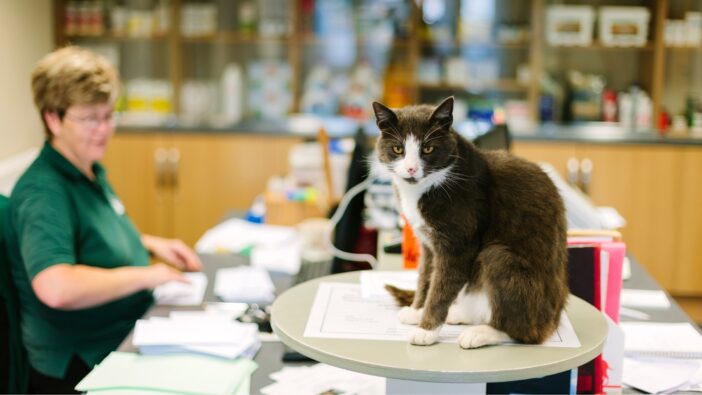
Not everything we do has to last forever.
I recently sat with a crying practice manager. She works at a small clinic with a single veterinarian who is the longtime clinic owner. He’s relatively young, has young children, and is dying of a terminal illness. My heart broke for her. She has been lining up relief veterinarians when she can, and the owner works when he is able, but that is becoming increasingly irregular. Practices nearby have begun running new-client specials, and she sees this as targeting her clinic’s pet owners (and maybe it is).
During our talk, she asked me how she could keep the clinic going. I didn’t have an answer, and talked to her a bit about how sometimes there isn’t anything for us to do other than to keep walking. When there are no choices to make, sometimes we hike in the rain.
Later in our conversation, I told her a lesson I have personally learned but never really shared before. It is that sometimes things end, and that’s okay. It’s not failure, it’s just that everything has its time.
For most of my life, I subconsciously believed that success inherently involves building. Being successful means growing or advancing. Staying in the same place was acceptable only in the short term, and stopping meant failure. A business that closed had died. A hobby that ended was quit. A project that got discontinued had failed.
I did believe that failure was okay, as long as we kept trying things. However “endings” and “failures” were definitely synonymous in my mind.
The thing in my life that made me question this belief was improv comedy. Every Friday night I would take the stage with a group of friends to try to make strangers laugh. We would pour our hearts into creating something hilarious for ourselves and for the audience, and you know what came of it? Absolutely nothing.
The shows were generally very fun but no one recorded them and even if they had, improv is no fun to watch on a screen. It lives exclusively among the people who are there, at that moment. Have you ever heard someone trying to explain what happened at an improv comedy show? It’s like hearing someone describe a dream. It obviously means something to the person who experienced it, but it’s an awful story to sit through.
Relatedly, the shows never “went anywhere.” We were not trying to get bigger gigs, to travel, or to get on TV. The theater we used was tiny, so it wasn’t possible to increase the number of tickets we sold. There was no “next step” other than to come back the following week and try to make an entirely different group of people laugh just as hard.
As someone who always felt that success meant growth, I struggled with this reality. How do you succeed when there is nothing left of what you created?
I asked the founder of the comedy theater this question and he had an easy answer. “Success comes in the joy of creation.” His idea was that beautiful things are temporary, and sometimes we create valuable experiences that are not meant to last. This was a hard concept for me to get my head around, and I wrestled to truly internalize it for years.
Now, I see it in the pets that grow old under my care as a veterinarian. There is no beloved family pet that will live forever. They will all come to us, bring us joy, make our lives richer, and then they will leave us. Their lives can in no way be seen as a “failure” because they came and went. The same is true for so many other things in our lives.
It will be sad if this tiny clinic cannot keep its doors open, and my heart breaks for this tiny team, the doctor, and especially for his family. However, the good they did in the world and the experience they created for pets, clients, and each other should not be forgotten. We would all be lucky to work in a wonderful place for five or ten years, or to have a clinic like this in our community. The fact that it might not last forever is a reason to be sad, but never to feel like a failure.
I don’t want this manager to give up hope. I also don’t want her to live with a belief that she failed because a wonderful chapter in her life and the lives of others came to an end that she has no control over. Sometimes we have to consciously decide to accept changes that are beyond our control. In those instances, I think Dr. Suess gave the best advice, “Don’t cry because it’s over, smile because it happened.”